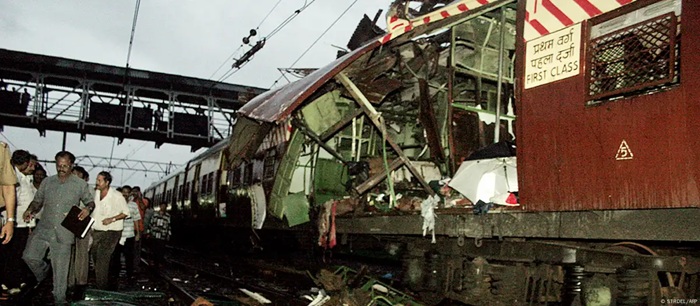
The Bombay High Court, in the Indian city of Mumbai, on Monday acquitted all 12 accused of carrying out the Mumbai train bomb attack in 2006.
The decision overturned a decade-old ruling by a special court that had issued the death penalty to five and life sentences to seven of the accused.
The individuals were sentenced in 2015, but have been in jail for over 18 years.
A two-judge panel observed that “the prosecution has utterly failed to prove the case against the accused. It is hard to believe that the accused committed the crime.”
“Hence, their conviction is quashed and set aside,” the panel said on Monday, as per several local media outlets, including NDTV.
What happened during the attack and in the earlier judgement?
On July 11, 2006, seven bombs rocked crowded Mumbai local trains during the evening rush hour, killing 189 people and injuring over 800.
On September 2015, a special trial court under the state’s organized crime law awarded the death penalty to five of the defendants for planting the bombs and life sentences to seven others for other involvement.
Another accused was acquitted by the trial court but only after he spent nine years in jail.
This judgment was then referred to the high court for confirmation of the death penalty, while the accused also appealed the matter.
Pending in the High Court since 2015, a special bench was constituted in July 2024 to arbitrate the matter.
Meanwhile, one of the accused passed away in prison in 2021 due to a COVID-19 infection.
What did the high court say?
While the detailed hearing judgment is yet to be released, legal news outlet Bar and Bench reported that the High Court bench found nearly all of the state’s witnesses unreliable.
“According to the Court, there was no reason for the taxi drivers or people in the train to remember the accused after almost 100 days,” the website reported.
Even the recovery of bombs, guns, maps, etc. submitted as crucial evidence by the prosecution was immaterial to the case and did not clearly tie those accused to the attacks, the court said.
The remaining 11 accused will now be released from prison after having spent nearly two decades in prison for crimes the court believes they did not commit.
India’s judiciary has long been overburdened. A 2025 India Justice Report showed over 50 million pending cases across high courts and subordinate courts since the end of 2024.
Meanwhile, the courts work with fewer than the prescribed number of judges, who often get only minutes to decide on a case. (DW)
